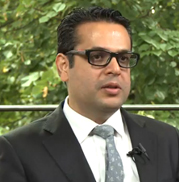 But what if they don’t?
But what if they don’t?
What if vaccination rates slip below the high rates required to keep infectious childhood diseases at bay?
In the US, some states have introduced vaccine ‘mandates’, essentially making immunisation mandatory for entry to public schools.
In almost all cases, it is possible for parents to get an exemption for their children for medical, religious or other reasons.
However, the ease with which parents can opt out of the vaccine schedule varies from state to state. Dr Saad Omer of Emory University, says that states where getting an exemption from the law is easy have higher rates of pertussis and measles.
While there are a number of reasons for disease outbreaks, research shows that where it’s easier to get an exemption, there are higher numbers of opt-outs; higher numbers of opt-outs is a factor in disease outbreaks.
Dr Omer says vaccine mandates can preserve individual choice while ‘nudging’ people to take a decision that is in their own interest and the interest of wider society.
“The balance of convenience should always be in favour of vaccinating over non-vaccinating,” he says. “Infectious diseases are, by definition, infectious – your behaviour impacts my child’s health.”
This idea can be extended to vaccination of healthcare workers in hospitals. It should, says Dr Omer, be easier to be vaccinated than not be vaccinated.
Read:



